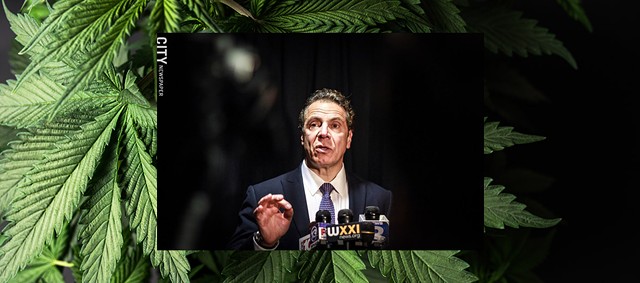Legalizing the recreational use of cannabis is “not likely” to be part of New York’s next budget, Governor Andrew Cuomo said Tuesday, a day before the spending plan was due.
Advocates for legalization had high hopes that the Cannabis Regulation and Taxation Act (CRTA) proposed as part of the budget would happen before the close of the fiscal year on March 31.
But the coronavirus pandemic has derailed talks on the bill, among countless other pieces of legislation that were a priority. Asked at a news briefing on the health crisis whether the bill had a chance of being included in the budget, Cuomo replied, “Not likely.”
“Too much, too little time,” he said.
The bill would have legalized the sale and use of recreational cannabis for adults over the age of 21, and put into place a number of so-called “social equity” provisions intended to ensure that minority groups disproportionately affected by criminal prosecution of marijuana over the decades had an opportunity to participate in the new, legal pot market.
Cuomo first introduced a version of the bill in the 2019-20 legislative session, but that failed to pass.
Pressure to legalize cannabis this year had been mounting, as other states, including Michigan and Illinois, pushed forward on their own reforms. But, given the health crisis, Cuomo’s pessimistic outlook on the matter did not surprise even the staunchest of advocates.
“I think about two weeks into March when coronavirus started to really take hold, we knew that the conversations that needed to be had weren’t going to be had,” Mary Kruger, president of the Rochester chapter of the National Organization for the Reform of Marijuana Laws (NORML), said.
As a result of the pandemic, Rochester NORML canceled its lobby days in Albany, where the group had planned to rally for legalization.
Another standalone bill, the Marihuana Regulation and Taxation Act (MRTA), was reintroduced in the Legislature this year, but is also thought to be unlikely to pass.
That bill, which has floated around since 2013, is preferred by activists due to its stringent social justice components and more liberal regulations.
Kruger said failing to legalize cannabis this year presents a double-edged sword. On one side, the state will forgo badly needed revenue. On the other, the debates needed to be hashed out to push the bill forward will not take priority.
“The need for revenue does help this to be a priority this session, but it’s definitely going to be more difficult for us to get a standalone bill passed through,” Kruger said.




